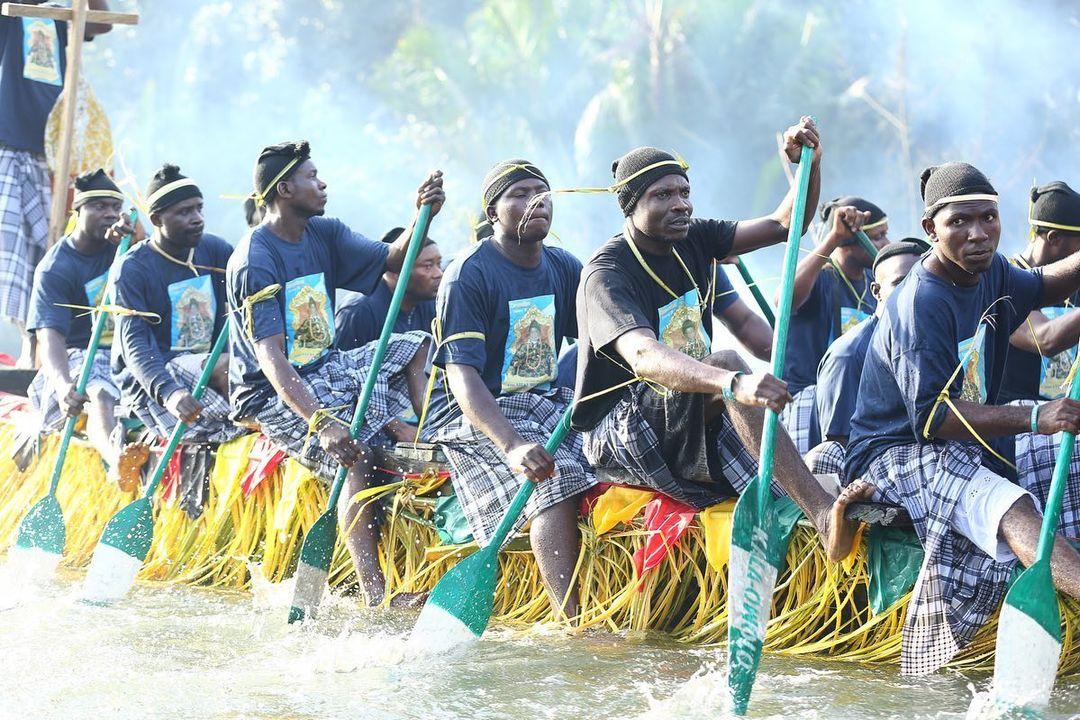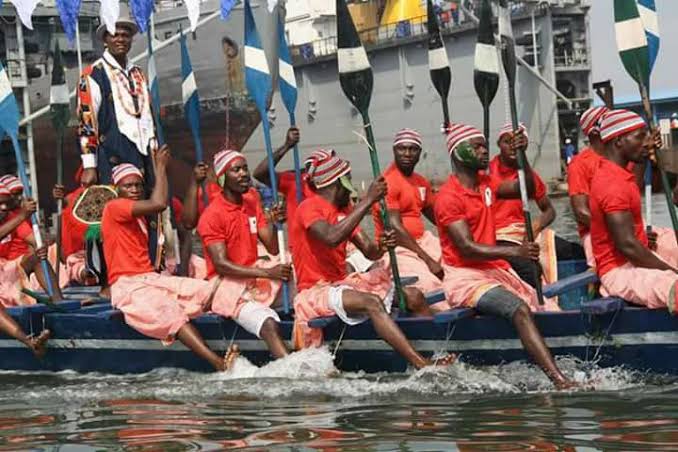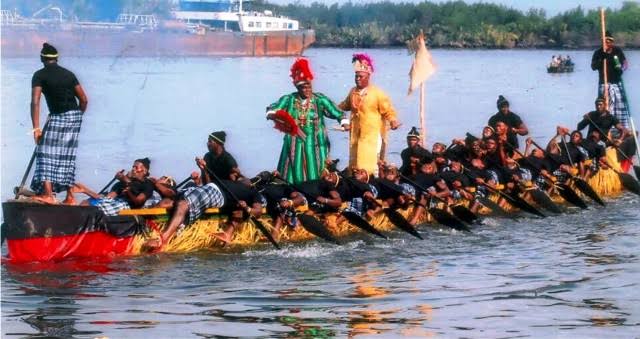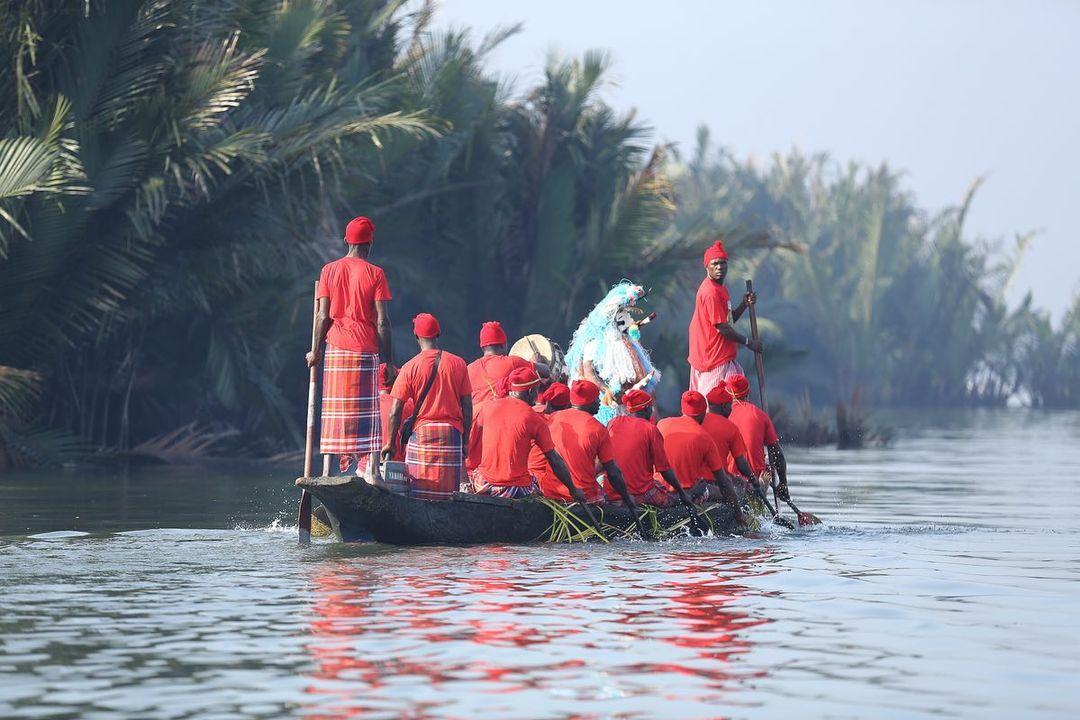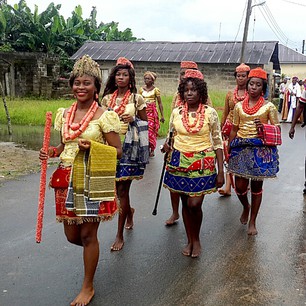History of War Canoe House in Okrika LGA. Rivers State.
The Okrikans like all other Ijaw sub-groups of the Niger Delta are organised into autonomous and co-equal War-Canoe houses (Omuaru-wari). Kinsmen living together in the same area make up each War-Canoe House.
The Okrikans like all other Ijaw sub-groups of the Niger Delta are organised into autonomous and co-equal War-Canoe houses (Omuaru-wari). Kinsmen living together in the same area make up each War-Canoe House.
Although the War-Canoe is an institution of kinship, historically, it deals principally with war and defence. War-Canoe houses may be different in terms of size and man power. however, Benefits and community assets are shared to the War-Canoe house equally and not
based on there numerical strength.
Every War-Canoe House is headed by a Chief who is assisted in various capacities by sub-chiefs. The Chief is addressed as the ‘Warinyanabo’ or ‘Waridabo’ showing his status as head of the entire War-Canoe house (Omuaru-wari).
Every War-Canoe House is headed by a Chief who is assisted in various capacities by sub-chiefs. The Chief is addressed as the ‘Warinyanabo’ or ‘Waridabo’ showing his status as head of the entire War-Canoe house (Omuaru-wari).
Each War-Canoe house also known as Omuaru-wari or Warinyengi is constituted by sub-units known variously as ‘Warikubu’ or ‘Oko’. Each sub-unit (Warikubu or Oko) is headed by a sub-chief known locally as the ‘Oko-tibidabo’. Each sub-unit (Warikubu or Oko) is further divided
into extended family units known as ‘Furo’. Characterised by strong kinship ties, the Furo is composed of grandfathers, parents, uncles, aunts, brothers, sisters, cousins, nephews and nieces.
Class System: Within each War-Canoe house, there are four classes for men and three for women. Classes are referred to as ‘Mumbu’. Male members of the War-Canoe house apart from the Chief and the King (Amayanabo) are classed into ‘Opu Mumbu’ (first class),
‘Ogbobiri Mumbu’ (second Class), ‘Kala Mumbu’ (third class) and ‘Owuapu-awo
(teenagers below 18 years of age). Similarly, females members of a War-Canoe house are classed into the ‘Opu Mumbu’ (first class), ‘Kala Mumbu’ (second class) and ‘Iria-Soka Awo’ (Maidens). The class
(teenagers below 18 years of age). Similarly, females members of a War-Canoe house are classed into the ‘Opu Mumbu’ (first class), ‘Kala Mumbu’ (second class) and ‘Iria-Soka Awo’ (Maidens). The class
system is an ordinary ranking system, however it ensures hard work and progress within the War-Canoe House.
Ranking is usually based on age and achievements. However, the main factors that determines promotion to a given class may vary between War-Canoe Houses.
Ranking is usually based on age and achievements. However, the main factors that determines promotion to a given class may vary between War-Canoe Houses.
As opposed to a Caste system, classes are not heritable nor transferable.Therefore,no member of the War-Canoe house is born into a class.Members higher up d class have a greater share of d benefits n financial burdens of the War-Canoe House but decision making within d

 Read on Twitter
Read on Twitter
